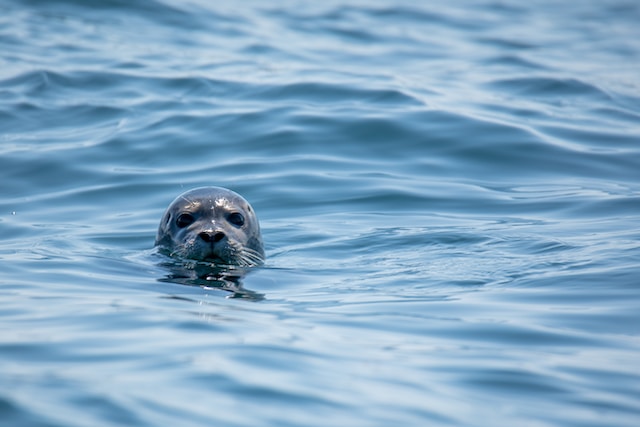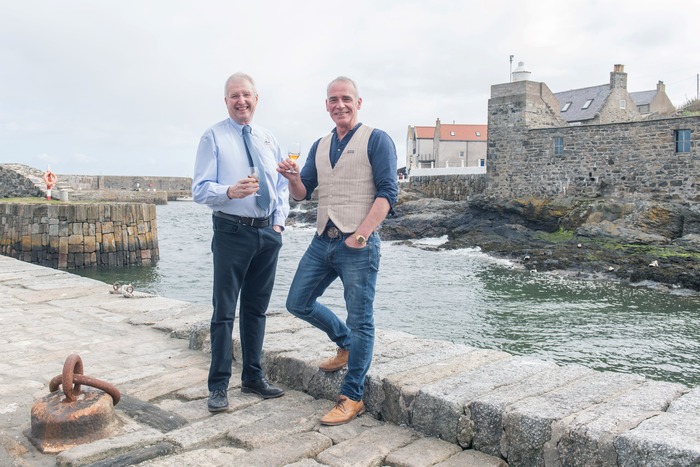As our world continues to develop, our oceans and marine life are facing new and unprecedented challenges. Marine consultants are playing an increasingly important role in addressing these challenges by providing expert advice and innovative solutions to protect our oceans and the creatures that inhabit them.
In this article, we will explore the role of marine consultants in protecting our oceans and marine life. We will examine their key responsibilities, the challenges they face, and the innovative solutions they are developing to ensure the health and sustainability of our oceans.
The Role of Marine Consultants
Marine consultants play a critical role in protecting our oceans and marine life. They provide expert advice to a range of stakeholders, including governments, businesses, and NGOs, on a variety of issues related to marine conservation and sustainability. This includes advising on the impact of human activities on marine ecosystems, developing strategies for sustainable fishing practices, and providing guidance on the design and implementation of marine protected areas.
Providing Expert Advice to Governments
One of the key roles of marine consultants is to provide expert advice to governments on marine conservation and sustainability. They work closely with policymakers to develop effective policies and regulations that protect marine ecosystems and promote sustainable development. This includes advising on issues such as marine pollution, overfishing, and the impact of climate change on marine ecosystems.
Advising Businesses on Sustainable Practices
Marine consultants also work with businesses to promote sustainable practices in the marine industry. This includes developing strategies for sustainable fishing, promoting the use of renewable energy in marine transport, and advising on the design and implementation of marine conservation projects.
Providing Guidance on Marine Protected Areas
Marine consultants also play a key role in the design and implementation of marine protected areas. They provide expert advice on the location, size, and design of these areas, as well as on the management and monitoring of these areas to ensure their effectiveness in protecting marine ecosystems and biodiversity.
Challenges Facing Marine Consultants
Marine consultants face a number of challenges in their efforts to protect our oceans and marine life. These challenges include the complex and dynamic nature of marine ecosystems, the lack of data on marine biodiversity, and the difficulty of implementing effective conservation measures in a global context.
Complexity of Marine Ecosystems
Marine ecosystems are complex and dynamic, making it difficult to fully understand the impact of human activities on these systems. This complexity also makes it challenging to develop effective conservation measures that take into account the interactions between different species and the environment.
Lack of Data on Marine Biodiversity
Another challenge facing marine consultants is the lack of data on marine biodiversity. This makes it difficult to assess the impact of human activities on marine ecosystems and to develop effective conservation measures that are based on scientific evidence.
Implementing Effective Conservation Measures
Finally, marine consultants face the challenge of implementing effective conservation measures in a global context. The ocean is a shared resource, and the actions of one country can have an impact on marine ecosystems and biodiversity in other parts of the world. This makes it challenging to develop and implement effective conservation measures that take into account the global nature of the ocean.
Innovative Solutions
Despite these challenges, marine consultants are developing innovative solutions to protect our oceans and marine life. These marine consultancy services include the use of new technologies, the development of sustainable practices in the marine industry, and the creation of new marine protected areas.
Use of New Technologies
Marine consultants are using new technologies to better understand and protect marine ecosystems. This includes the use of satellite imaging to track the movement of marine species, the use of drones to monitor marine protected areas, and the development of underwater robots to explore and study the ocean.
Development of Sustainable Practices in the Marine Industry
The marine industry is a critical sector that provides transportation, food, and other resources that support global economies. However, the industry’s practices have often led to negative impacts on the marine environment, including overfishing, pollution, and habitat destruction. To address these challenges, marine consultants are working with businesses in the marine industry to develop sustainable practices.
One key area of focus is sustainable fishing practices. Overfishing has depleted fish populations and damaged marine ecosystems. Marine consultants are working with fishing companies to develop fishing practices that are environmentally sustainable and socially responsible. These practices include the use of selective fishing methods that target only specific species and sizes of fish, the implementation of fishing quotas to prevent overfishing, and the use of fishing gear that minimizes damage to the marine environment.
In addition to sustainable fishing practices, marine consultants are also promoting the use of renewable energy in marine transport. The shipping industry is a significant source of greenhouse gas emissions, which contribute to climate change. To reduce these emissions, marine consultants are working with shipping companies to promote the use of alternative fuels such as biofuels, hydrogen, and electric power. They are also developing innovative technologies such as wind-assisted propulsion and hybrid power systems to reduce emissions.
Finally, marine consultants are also working to reduce waste in the marine industry. The industry generates significant amounts of waste, including plastic pollution, oil spills, and hazardous chemicals. Marine consultants are working with businesses to implement waste reduction measures such as recycling, waste-to-energy conversion, and the use of biodegradable materials. These measures can help to reduce the environmental impact of the marine industry and protect the health of marine ecosystems and wildlife.
Overall, the development of sustainable practices in the marine industry is critical to protecting our oceans and marine life. By working with marine consultants, businesses in the marine industry can develop practices that are environmentally sustainable, socially responsible, and economically viable. This will help to ensure that the marine industry continues to provide critical resources while also protecting the health of our oceans and the creatures that inhabit them.
Creation of New Marine Protected Areas
Marine protected areas (MPAs) are designated areas in the ocean that are legally protected and managed to conserve marine ecosystems and biodiversity. MPAs can help to prevent overfishing, reduce marine pollution, and provide a safe habitat for marine species. Marine consultants play a critical role in the creation of new MPAs by providing scientific expertise and guidance to governments and other stakeholders.
Marine consultants work with governments to identify areas that are ecologically important and in need of protection. They use scientific data and research to identify key habitats, species, and ecosystems that require protection. Once these areas are identified, marine consultants work with government officials to develop management plans and regulations to protect them.
Marine consultants also work with NGOs and local communities to promote the creation of MPAs. They provide guidance on the benefits of MPAs and how they can be established and managed. They also work with these stakeholders to address concerns and overcome challenges that may arise during the creation of new MPAs.
The creation of new MPAs is critical to protecting marine ecosystems and biodiversity. These protected areas can help to prevent overfishing by restricting fishing activities, reduce marine pollution by limiting human activities in the area, and provide a safe habitat for marine species. MPAs can also promote ecotourism and provide economic benefits for local communities.
Conclusion
In conclusion, marine consultants play a critical role in protecting our oceans and marine life. They provide expert advice, innovative solutions, and guidance to governments, businesses, and NGOs on a range of issues related to marine conservation and sustainability. Despite the challenges they face, marine consultants are developing innovative solutions to safeguard our oceans and the creatures that inhabit them.





